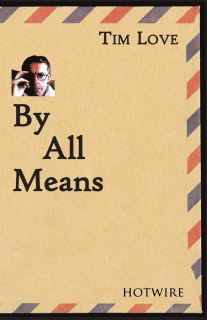With issue 25 of "Under the radar" just out, and another book launched (one of 11 for 2020), Nine Arches Press continues going from strength to strength. Jane Commane's at the helm, but one gets the feeling that many people contribute to the success of the venture. I'm not trying to be comprehensive below, just trying to give a flavour of the habitat that NAP has engendered, so apologies in advance to anybody I've omitted.
- Magazine - "Under the Radar" is edited by Jane, Maria Taylor, Matt Merritt, and occasional guest editors. Reviewing is taken seriously - 15 pages of 87 in issue 25. Short fiction hangs on in there - Tania Hershman etc.
- Books - Some are promoted as being rather issues-based: chasing the Zeitgeist? But Rishi Dastidar's work is avant-garde. In fact, the work spans the poetry spectrum - one of many spectra that NAP spans. There are books by professors and by the "2019 Young People's Laureate for London". Publication by NAP helps the authors, though it's reciprocal - the author's other successes enhance the brand. TS.Eliot-shortlisted Jacqueline Saphra recently appeared on Radio 3's "The Verb" program. And of course, Jo Bell's been on TV.
- Mentoring - Jane mentors in several capacities. I've found their creative writing books (most recently "The Craft") useful as self-mentoring aids.
- Events - Venue-based events are on hold. There's an online Book group series - see Readings with Q&As (I watched Julia Webb's recent one, which went well)
- Videos - See the poetry films
- Social Media - See Facebook and Twitter
The press illustrates (and might even lead) many current trends in the poetry word - inclusion, breaking boundaries, Stage/Page integration, Collaboration, etc. My only gripe is that they use "unflinching" in their advertising.
 My story collection "By All Means" (ISBN 978-0-9570984-9-7), published by Nine Arches Press, is on sale from
My story collection "By All Means" (ISBN 978-0-9570984-9-7), published by Nine Arches Press, is on sale from  My poetry pamphlet "Moving Parts" (ISBN 978-1-905939-59-6) is out now, on sale at the
My poetry pamphlet "Moving Parts" (ISBN 978-1-905939-59-6) is out now, on sale at the 